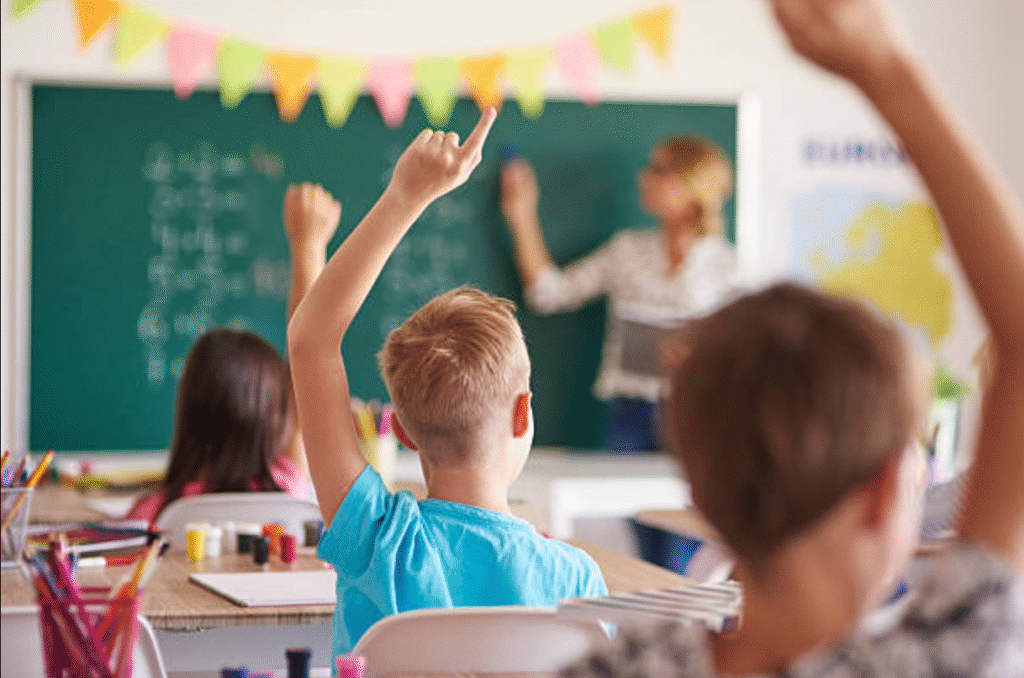- Content

First grade is not just a new stage, but a whole world of discoveries: first surprises, first attempts, first small victories. It is during this period that not only the knowledge base is formed, but also the attitude towards learning — as something exciting, lively, and close. At our My Horizons Lyceum, we strive to ensure that children do not just absorb the material, but genuinely want to understand, explore, and ask questions. Because it is curiosity that is the starting point for true education.
Interactive classes and project-based learning
Can learning be like a game, and each lesson an exciting journey into the world of knowledge? In our first grade, that’s exactly how it happens. We structure the learning process so that knowledge is not reduced to simply studying a textbook, but comes to life in real-world tasks, observations, and teamwork.
Every week, children immerse themselves in mini-projects — educational stories in which they are not passive listeners but active participants. They create their own illustrated books, build models of houses, study seasonal changes in nature, prepare presentations about their families, come up with advertisements for a fictional product, or develop a plan for a trip to Mars. This is not just entertainment — it is deep learning through practice, creativity, and interaction.

The format of the class is constantly changing: from pair work to team discussions, from individual experiments to joint theatrical performances. After an explanation, there is a movement exercise; after a task, there is a discussion. We teach children not only to listen, but also to formulate their own thoughts, share their impressions, ask questions, and seek answers together.
This rhythm allows us to maintain natural curiosity, avoid overload, and form a key skill — seeing the meaning in what you are learning. Because when learning is combined with emotion, action, and interaction, it inspires. And this is where the love of knowledge begins, which only grows over time.
Modern equipment and techniques
Our classrooms are not just learning spaces, but living spaces where children want to act, explore, and create. Everything here is designed to make children feel free, confident, and inspired. Each classroom is equipped with modern multimedia technology, interactive whiteboards, sensory kits, creative materials, and themed play areas that stimulate curiosity and activity.
We combine the state education program with the best global teaching practices. In our work, we use the Maria Montessori method, elements of LEGO construction, integrated learning, and exercises to develop critical thinking and speech. This approach allows us to adapt the material to the age and characteristics of each child.

We create an environment where you can ask questions, seek answers, make mistakes, and try again — without fear of failure. Because school is not a place for templates, but a laboratory of knowledge where everyone has the right to their own path to understanding.
Fostering curiosity instead of rote learning
We do not want first graders to know more than their peers. We want them to be curious about learning. It is this curiosity that we nurture and develop from day one.
We don’t give ready-made answers in class. We ask questions: “Why does it work this way?”, “How would you explain this to your younger brother?”, “What else would you like to know?” This encourages understanding rather than memorization, initiative rather than passivity.
Children learn not for grades, but for themselves. They develop internal motivation — interest in the process, a desire to try again, satisfaction with the result. This is how academic interest is formed, which does not fade with age, but becomes a foundation for further years at school.
Your child will be excited to go to school. We create an environment where learning is a real passion.